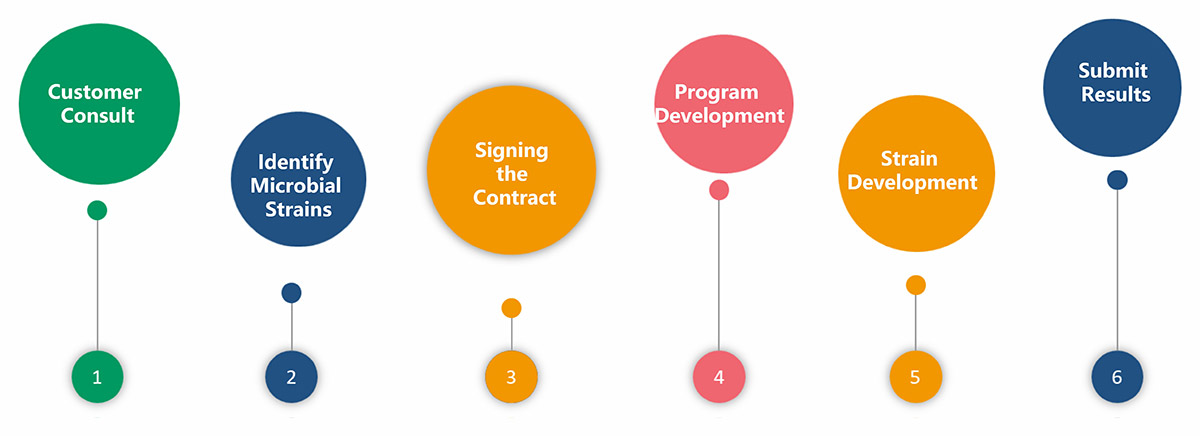
Mabinlin is a sweet-tasting protein found in the seeds of the Chinese herbal plant Capparis masaikai Levl. In terms of its sequence, it can be divided into four homologs, I, II, Ⅲ, and IV, with mabinlin II being the most studied and the most thermostable. Due to its high sweetness and low-calorie content, mabinlin has been extensively studied as a potential natural sweetener substitute for sugar. However, its availability is limited due to the low yield of mabinlin from the plant. To overcome this challenge, various research groups have focused on developing alternative methods for mabinlin production, including using recombinant DNA technology to produce mabinlin in bacterial and plant hosts.
At Lifeasible, we offer characterization services for mabinlin production strains development to facilitate the development of efficient and sustainable mabinlin production methods.
We have a team of experienced scientists who can help you select and optimize the best strains for mabinlin production. Our team can use various techniques, such as random mutagenesis and targeted genome editing, to create high-yielding mabinlin production strains.
| Service Step | Service Content |
| Strain selection and optimization | Our scientists will select the most suitable microbial strains for expressing mabinlin for you. Alternatively, we can engineer specific strains upon your request. |
| Plasmid construction and strain transformation | According to the identified strains, we will formulate a follow-up test plan. Restriction sites, vectors, antibiotic selection markers, culture media, etc., are carefully selected for you. After the mabinlin gene is cloned into the vector, E. coli DH5α is generally used to amplify the vector. Then, the transformed vector is transformed into the target strain, and successful transformants are screened. |
| Mabinlin expression analysis | We offer expression analysis services to determine the level of mabinlin production in your chosen strains. Our team can use various techniques, such as western blotting and ELISA, to measure the amount of mabinlin produced by your strains. |
| Mabinlin purification | Our team can use various techniques, such as western blotting and ELISA, to measure the amount of mabinlin produced by your strains. |
| Analysis of recombinant mabinlin (optional) | Customers can choose an N-terminal amino acid sequence, sensory analysis, and other items to analyze the activity of mabinlin. |
Technical means: plasmid transformation
Microbial strains that can be developed: Escherichia coli, Lactococcus lactis, Pichia pastoris, etc.
Vectors: pNZ8148, pET-28a(+), pCU1 plasmid, etc.
Delivery results: microbial strains capable of expressing mabinlin, experimental data, pictures, and standard experimental reports.

At Lifeasible, we offer mabinlin production strain development services to provide you with the best strains for your mabinlin production needs. Our expertise, state-of-the-art facilities, customized services, and competitive pricing make us the ideal partner for mabinlin production strains development. If you would like to work with us, please contact us directly.
Reference